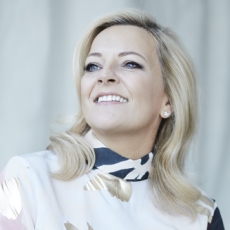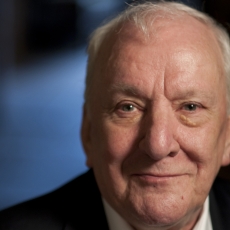
Claire Martin & Richard Rodney Bennett - Live Review - The Independent
Three classical premieres followed by a jazz bash for Britain's most prolific crossover-composer: thus does the Nash Ensemble celebrate the 75th birthday of one of its most successful sons. Where would British music have been without the Nash? Artistically poorer, for since its foundation in 1964, this world-beating ensemble has commissioned 160 new works, including major ones by Elliot Carter, Harrison Birtwistle, Mark-Anthony Turnage, plus a catalogue of other now-prominent composers.
This concert opened with Debussy's ‘Syrinx' for solo flute, a miniature which gently took on the argument from his more famous flute solo in the ‘Prelude a l'apres-midi'. This segued straight into Richard Rodney Bennett's ‘Sonata for flute, viola, and harp' which had been inspired by ‘Syrinx': flautist Philippa Davies led the way through its gracefully expanding sound-world.
The first premiere was Simon Holt's ‘The Torturer's Horse for string sextet'. Its title refers to an Auden poem, and its import is ‘how real, tragic events are happening all around us, but normal life carries on regardless'; it also came with a note that Holt had been inspired by Poussin's ‘Landscape with a man killed by a snake'. That may have fired his imagination, but the resultant music's internal drama - all clashing colours and textures - needed no such external crutch.
Then came premieres from two new-music veterans, both in spirited form. David Matthews had dedicated his ‘Horn Quintet for horn and string quartet' to his mentor Nicholas Maw, but the mellow warmth of its slow movement was closer to Bartok; horn-player Richard Watkins - with his cellist brother Paul at his side - brought a pliant virtuosity to the fast movement.
Michael Berkeley's ‘Three Rilke Sonnets' came with a commentary informing us that ‘recent hearing problems' had led him to ‘a more economic use of notes', but his music has benefited enormously from this constriction. Soprano Claire Booth was the superb soloist, her lead being followed in turn by viola, harp, horn, and bass flute: faithfully illuminating Rilke's ethereal and allusive poetry, Berkeley's brightly-coloured work sounded like a new-minted classic.
After a Turnage song-cycle which works no better now than it did when first unveiled, it was party time, with Richard Rodney Bennett and his old friend Claire Martin giving us Gershwin, Cole Porter et al. Bravo.
